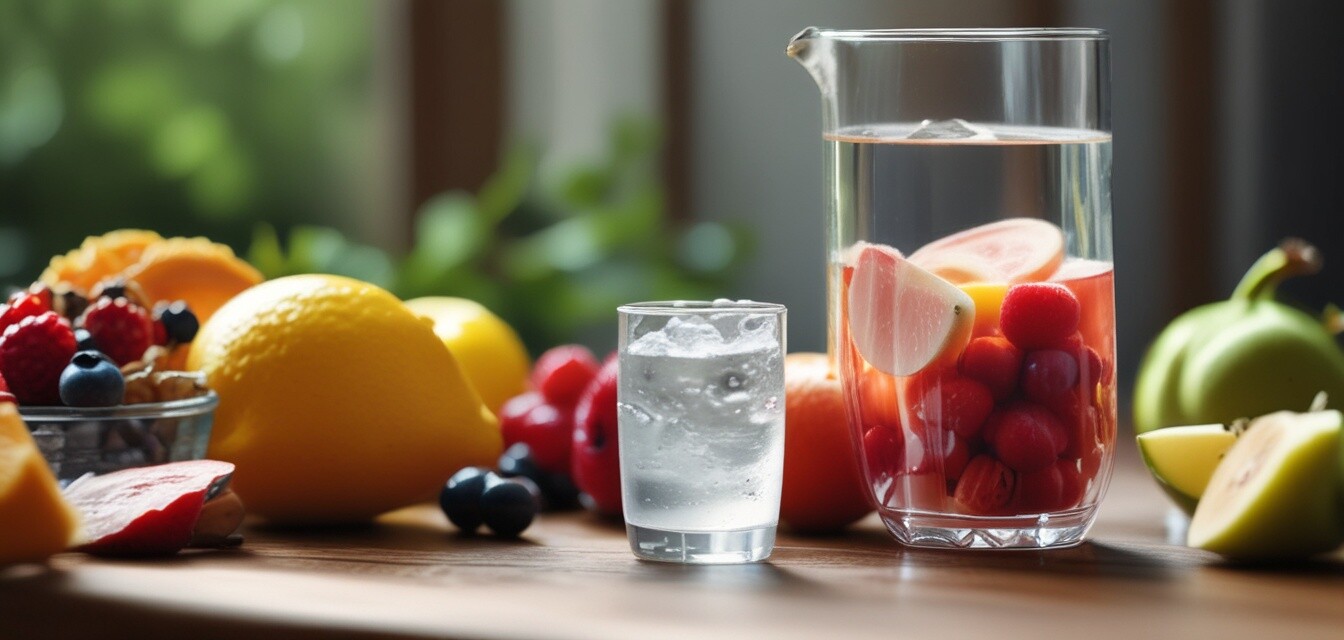
The relationship between hydration and prenatal vitamins
Key Takeaways
- Proper hydration is vital during pregnancy.
- Hydration enhances the effectiveness of prenatal vitamins.
- Expecting mothers should aim for consistent fluid intake throughout the day.
- Certain foods can contribute to hydration levels.
- Monitoring hydration can help alleviate pregnancy-related discomfort.
Understanding the link between hydration and prenatal vitamins is essential for expecting mothers. Maintaining proper fluid intake not only optimizes the benefits of prenatal supplements but also plays a crucial role in overall health during pregnancy. In this article, we will explore the importance of hydration, how it relates to prenatal vitamins, and practical tips for staying well-hydrated.
Why hydration is important during pregnancy
Staying hydrated is crucial for everyone, but especially for pregnant women. Proper hydration can help support maternal and fetal health in many ways. Here are some key reasons why hydration is important during pregnancy:
- Fluid balance: Maintaining hydration helps regulate fluids in your body, which is essential during pregnancy.
- Blood volume: The blood volume increases significantly during pregnancy, and adequate hydration supports this increase.
- Amniotic fluid: Staying hydrated helps in the production of amniotic fluid, which surrounds and protects the baby.
- Digestive health: Hydration can help alleviate common pregnancy-related digestive issues like constipation.
The connection between hydration and prenatal vitamins
Prenatal vitamins are specifically formulated to provide essential nutrients for the growth and development of the fetus. However, their effectiveness can be influenced by hydration levels. Here’s how:
- Absorption: Proper hydration aids in the absorption of nutrients from the vitamins, ensuring that both mom and baby receive the essential components needed for health.
- Distribution: Hydration helps in the distribution of these nutrients throughout the body, increasing their overall availability to the developing baby.
- Detoxification: Adequate water intake assists in flushing out toxins from the body, which could otherwise interfere with nutrient utilization.
Tips for maintaining hydration during pregnancy
Here are some practical tips to help expectant mothers keep their hydration levels where they need to be:
Beginner's hydration tips
- Set a routine: Drink water at regular intervals throughout the day.
- Keep a water bottle handy: Carrying a refillable water bottle can serve as a constant reminder to hydrate.
- Incorporate hydrating foods: Include fruits and vegetables with high water content in your diet, such as cucumbers, watermelon, oranges, and strawberries.
- Monitor your intake: Calculate your daily water needs based on your activity level and adjust accordingly.
- Use flavorings: Adding natural flavorings like lemon, mint, or cucumber can make drinking water more enjoyable.
Foods that can help with hydration
In addition to drinking water, certain foods can boost your hydration levels. Here is a table detailing some hydrating foods and their water content:
| Food | Water Content (percentage) |
|---|---|
| Cucumber | 95% |
| Watermelon | 92% |
| Strawberries | 91% |
| Celery | 95% |
| Spinach | 91% |
Signs of dehydration during pregnancy
Recognizing the signs of dehydration is crucial for expectant mothers. Common symptoms include:
- Dry mouth or excessive thirst
- Dark yellow urine
- Fatigue or dizziness
- Headaches
Conclusion
In conclusion, staying well-hydrated is essential for the effectiveness of prenatal vitamins and the overall health of both mother and baby. Making conscious efforts to maintain fluid intake will promote a healthier pregnancy journey. For more insights on maintaining a healthy pregnancy, check out our Healthy Pregnancy Tips category.
Pros
- Improves nutrient absorption from prenatal vitamins.
- Supports overall health during pregnancy.
- Reduces discomfort from pregnancy-related conditions.
Cons
- Forgetting to drink enough water can lead to dehydration.
- Too much fluid intake on a full stomach may cause discomfort.
